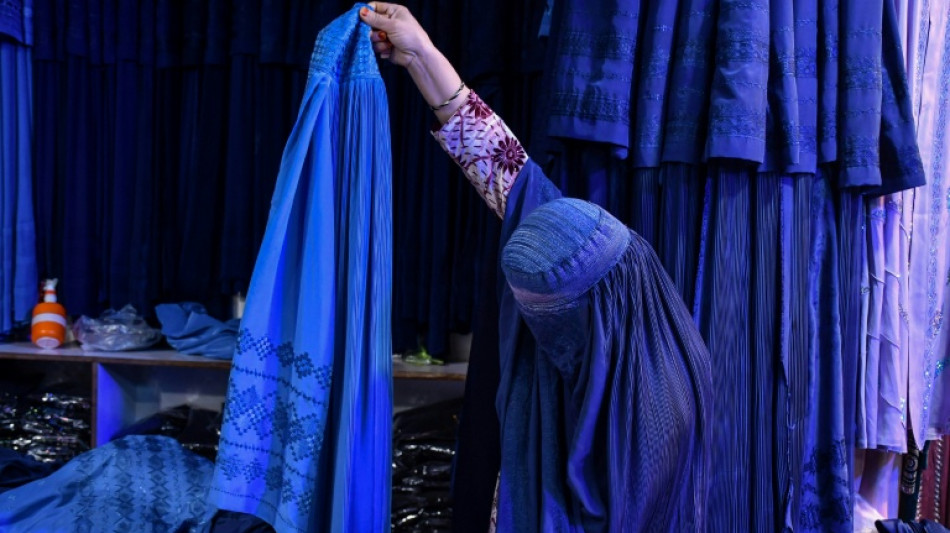
-
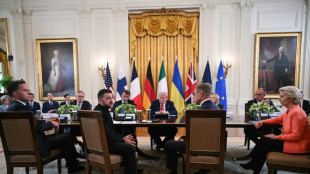 How Europe tried to speak Trump
How Europe tried to speak Trump
-
Ombudsman gives Gosden another International, Derby hero Lambourn loses

-
 Eurovision returns to Vienna, 11 years after Conchita Wurst triumph
Eurovision returns to Vienna, 11 years after Conchita Wurst triumph
-
England expects at Women's Rugby World Cup as hosts name strong side for opener

-
 Marseille's Rabiot, Rowe up for sale after 'extremely violent' bust-up: club president
Marseille's Rabiot, Rowe up for sale after 'extremely violent' bust-up: club president
-
French champagne harvest begins with 'promising' outlook

-
 England unchanged for Women's Rugby World Cup opener against the USA
England unchanged for Women's Rugby World Cup opener against the USA
-
Stock markets diverge as traders eye US rate signals

-
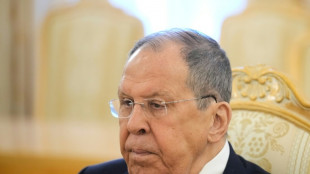 Russia says must be part of Ukraine security guarantees talks
Russia says must be part of Ukraine security guarantees talks
-
Historic Swedish church arrives at new home after two-day journey
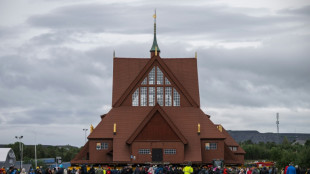
-
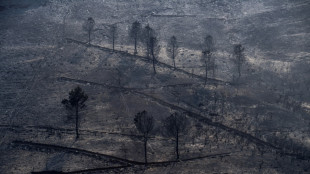 Winds complicate wildfire battle in Spain
Winds complicate wildfire battle in Spain
-
Nestle unveils method to boost cocoa yields as climate change hits

-
 UK set for more legal challenges over migrant hotels
UK set for more legal challenges over migrant hotels
-
Russia says discussing Ukraine security guarantees without Moscow 'road to nowhere'
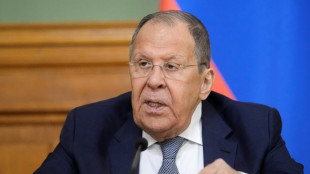
-
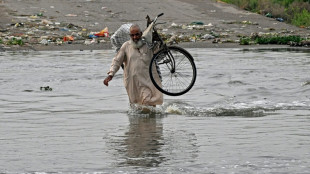 Torrential Pakistan monsoon rains kill more than 20
Torrential Pakistan monsoon rains kill more than 20
-
Record number of mosquito-borne disease outbreaks in Europe: health agency

-
 Stock markets diverge after Wall Street tech sell-off
Stock markets diverge after Wall Street tech sell-off
-
Chinese troops swelter through rehearsal for major military parade
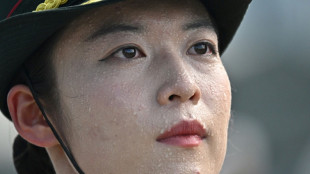
-
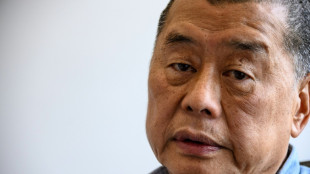 Defence begins closing arguments in Hong Kong trial of Jimmy Lai
Defence begins closing arguments in Hong Kong trial of Jimmy Lai
-
World champions Springboks to play Japan at Wembley

-
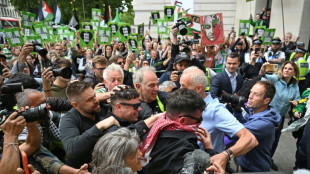 Kneecap rapper in court on terrorism charge over Hezbollah flag
Kneecap rapper in court on terrorism charge over Hezbollah flag
-
Israel approves plan to conquer Gaza City, calls up reservists
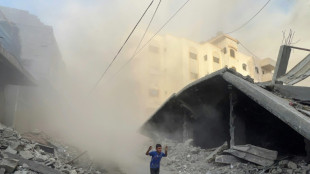
-
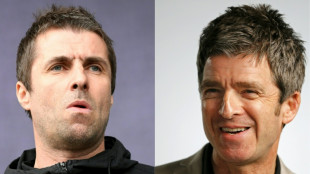 Oasis star Noel Gallagher piles praise on 'amazing' brother Liam
Oasis star Noel Gallagher piles praise on 'amazing' brother Liam
-
German minister says China's 'assertiveness' threatens European interests
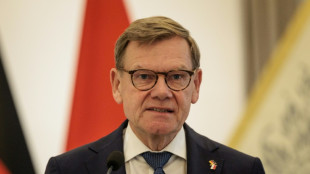
-
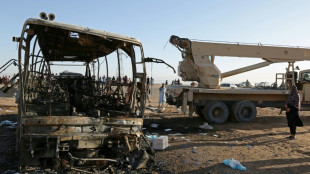 Afghanistan bus crash death toll rises to 78
Afghanistan bus crash death toll rises to 78
-
Historic Swedish church inches closer to new home
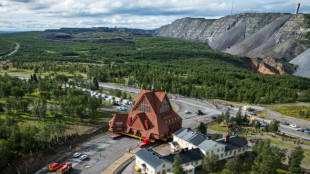
-
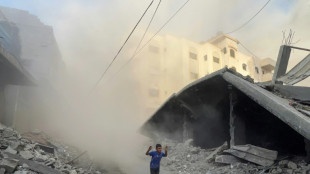 Israel defence minister approves plan to conquer Gaza City
Israel defence minister approves plan to conquer Gaza City
-
More than 20 dead in fresh Pakistan monsoon rains
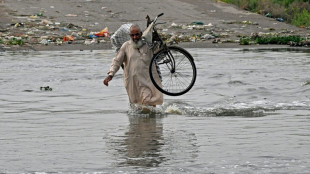
-
 Brazilian goalkeeper Fabio claims world record for most games
Brazilian goalkeeper Fabio claims world record for most games
-
Vienna chosen to host Eurovision 2026

-
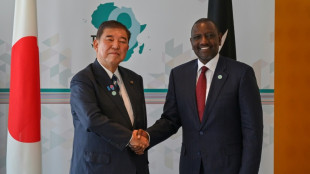 Japan hosts African leaders for development conference
Japan hosts African leaders for development conference
-
Reclusive Turkmenistan bids to go tobacco-free in 2025
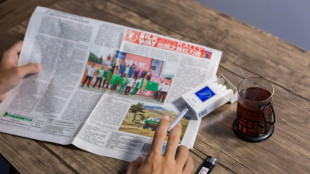
-
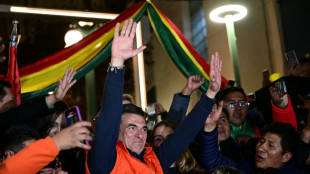 From TikTok to frontrunner, inside Paz's presidential campaign in Bolivia
From TikTok to frontrunner, inside Paz's presidential campaign in Bolivia
-
Chinese mega-hit 'Ne Zha II' enlists Michelle Yeoh to woo US audiences

-
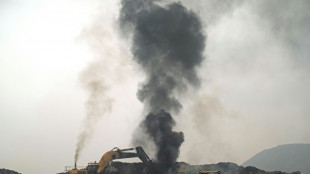 India celebrates clean energy milestone but coal still king
India celebrates clean energy milestone but coal still king
-
US demand for RVs fuels deforestation on Indonesia's Borneo: NGOs

-
 Kneecap rapper faces court on terror charge over Hezbollah flag
Kneecap rapper faces court on terror charge over Hezbollah flag
-
Dutch divers still haul up debris six years after container spill
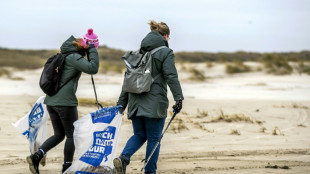
-
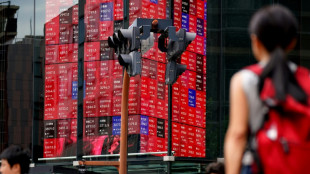 Asian markets dip after US tech slide
Asian markets dip after US tech slide
-
NZ soldier sentenced to two years' detention for attempted espionage
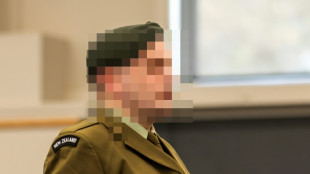
-
 Time to Go: Japan pro board game player retires at 98
Time to Go: Japan pro board game player retires at 98
-
City girls snub traditional Hindu face tattoos in Pakistan
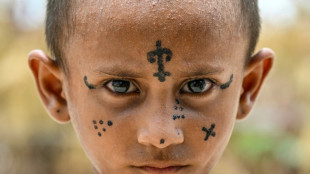
-
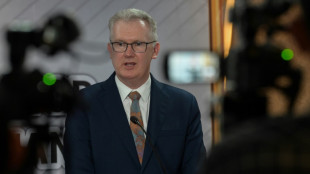 Australia lashes Netanyahu over 'weak' leader outburst
Australia lashes Netanyahu over 'weak' leader outburst
-
Polar bear waltz: Fake Trump-Putin AI images shroud Ukraine peace effort

-
 Sounds serious: NYC noise pollution takes a toll
Sounds serious: NYC noise pollution takes a toll
-
Trump slams US museums for focus on 'how bad slavery was'

-
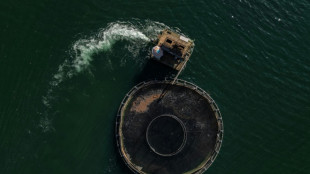 US agrees to talks with Brazilian WTO delegates on tariffs
US agrees to talks with Brazilian WTO delegates on tariffs
-
Israel-France row flares over Macron's move to recognise Palestinian state
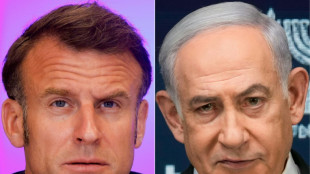
-
 Rust Mobile's 1st Closed Beta Set for November
Rust Mobile's 1st Closed Beta Set for November
-
White House starts TikTok account as platform in US legal limbo

| RYCEF | -3.25% | 13.85 | $ | |
| CMSC | 0.13% | 23.42 | $ | |
| SCS | 0.09% | 16.255 | $ | |
| RBGPF | -3.62% | 73.27 | $ | |
| BCC | -3.38% | 85.185 | $ | |
| RELX | 1.93% | 48.73 | $ | |
| NGG | 1.24% | 71.87 | $ | |
| GSK | 1.59% | 40.26 | $ | |
| VOD | 1.58% | 11.905 | $ | |
| RIO | 0.47% | 60.876 | $ | |
| CMSD | 0.25% | 23.65 | $ | |
| BCE | 0.83% | 25.795 | $ | |
| BTI | 2.8% | 59.125 | $ | |
| AZN | 1.46% | 80.715 | $ | |
| BP | 0.29% | 33.92 | $ | |
| JRI | 0.3% | 13.32 | $ |

New generation of Afghan women shift from burqa
Young, urban women in Afghanistan are increasingly ditching the all-enveloping blue burqa with a face mesh that has become a symbol of the Taliban's oppression of women.
Since their return to power in 2021, the Taliban have imposed an ultra-strict vision of Islamic law, modelled on their previous rule from 1996 to 2001.
But while women must still have their bodies and faces covered, restrictions from the feared religious police do not specifically mention the burqa.
So young women are instead following fashions seen in many Gulf nations.
Many prefer a flowing abaya robe, worn with a hijab headscarf and often a face covering as well -- sometimes a medical mask, or a Saudi-style cloth niqab veil that exposes only the eyes.
"The new generation would never accept wearing a burqa, because of the design and colour," said 23-year-old Tahmina Adel in the capital Kabul.
With social media, "everybody follows the trends", Adel added, who was forced to quit her economics degree because of the Taliban government's ban on women's education.
"I prefer wearing an abaya because I am comfortable in that," she said.
Young women in Kabul and the northern city of Mazar-i-Sharif said that abayas and headscarves offer more freedom of expression than burqas, with a variation in colour, material and pattern.
"Only elders wear a burqa," said Razia Khaliq, as she embroidered one at a workshop in Mazar-i-Sharif.
Khaliq began wearing the billowing head-to-toe burqa aged 13, like her mother and grandmother before her.
But her daughter, in her 20s, prefers the abaya.
"Young people wear the abaya because it is more comfortable," Khaliq said.
- 'Stifling' -
The burqa has long roots in Afghanistan.
It was strictly enforced during the first Taliban government rule of Afghanistan, when women were lashed for failing to wear one in public.
But the abaya and hijab headscarf combination grew in popularity during the time of the foreign-backed government.
When the Taliban recaptured Kabul in 2021, they had promised to be more flexible than during their first rule, when women were deprived of almost all their rights.
They have gradually erased Afghan women from public space, imposing what the United Nations has called a "gender apartheid".
They outlawed the loose headscarves commonly worn by urban women.
Billboards were erected ordering women to once again wear the burqa -- or an abaya, headscarf and a face covering.
A law in August confirmed restrictions imposed on men and women by the religious police.
It stipulates that, while women can go out "in case of necessity", they must cover up.
"Whether a burqa or hijab, there is no difference," said Saif ul Islam Khyber, spokesman for the morality police, known officially as the Ministry for the Propagation of Virtue and the Prevention of Vice.
Nasima, in her 40s, insisted that "showing your face is a sin".
But she admitted to sometimes wearing an abaya and headscarf to free her nose and mouth from the "stifling" burqa.
- 'Very strange' -
Niha, 22, said she was reprimanded for not wearing a burqa in public buildings, which are guarded by the Taliban authority's security forces.
It is common to be asked to readjust the headscarf, or ordered to add a medical mask.
"As soon as we enter offices, we are mistreated," said Niha, who did not give her surname.
Hayatullah Rafiqi, a specialist in Pashtun culture, said the burqa was "strictly imposed" under the first Taliban government -- when some women were "whipped if they did not wear it" -- but that "today it is worn less."
Burqas vary only in colour according to province, from blue to light brown, and green to pink.
Gul Mohammad has been selling burqas in Kabul for 40 years, and said many now come from China -- made of nylon rather than cotton, making them cheaper and stronger but less breathable.
"The Chinese burqa is very cold in winter, and it is like fire in summer," said Gul. "This makes the women sweat."
For Sabrina, 23, from the Taliban's spiritual cradle of Kandahar, life under a burqa is fraught with pitfalls.
She is regularly lectured if she does not wear it.
The first time she wore it was after the Taliban government seized back control in 2021, and it was not her choice.
"I couldn't see my way, I didn't know if I was going right or left," she said. "It was very strange."
M.Vogt--VB
